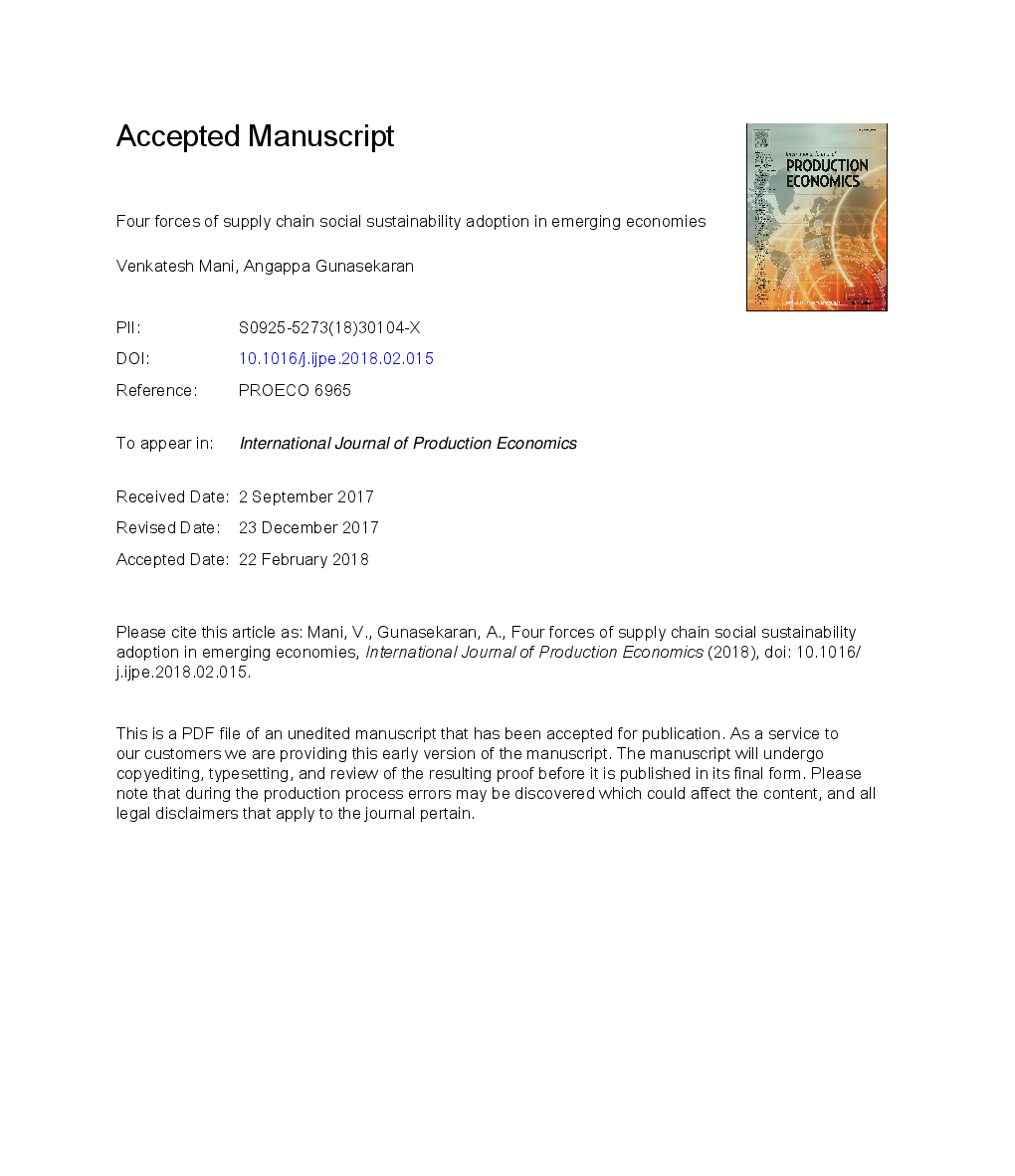ترجمه فارسی عنوان مقاله
چهار نیرو از زنجیره تأمین پایداری اجتماعی در اقتصادهای نوظهور
عنوان انگلیسی
Four forces of supply chain social sustainability adoption in emerging economies
| کد مقاله | سال انتشار | تعداد صفحات مقاله انگلیسی |
|---|---|---|
| 107791 | 2018 | 35 صفحه PDF |
منبع

Publisher : Elsevier - Science Direct (الزویر - ساینس دایرکت)
Journal : International Journal of Production Economics, Volume 199, May 2018, Pages 150-161
ترجمه کلمات کلیدی
پایداری اجتماعی، اقتصاد نوظهور، پایداری، ساز و کارهای سازمانی، مدل سازی معادلات ساختاری،
کلمات کلیدی انگلیسی
Social sustainability; Emerging economy; Sustainability; Institutional mechanisms; Structural equation modeling;
ترجمه چکیده
علیرغم افزایش آگاهی ذینفعان در مورد مسائل مربوط به پایداری اجتماعی، در مورد اینکه چه تأثیراتی بر شرکت ها برای پذیرش پایداری اجتماعی در شیوه های مدیریت زنجیره تأمین و مزایای حاصل از چنین تلاش هایی دارد، شناخته شده است. این به ویژه برای اقتصادهای نوظهور در آسیا و جنوب غربی اروپا، جایی که هنجارهای اجتماعی بسیار متفاوت است، صادق است. با در نظر گرفتن دیدگاه های ذینفعان و نهادها، ما با بررسی چگونگی فشار مشتریان، فرهنگ پایداری، دولت و ذینفعان خارجی به عنوان عوامل اصلی شرکت در تعیین میزان شرکت در در نظر گرفتن پذیرش پایداری اجتماعی زنجیره تأمین در اقتصادهای نوظهور، اقدام می کنیم. علاوه بر این، ما کشف می کنیم که چطور چنین اتخاذ پایداری اجتماعی مربوط به عملکرد اجتماعی تامین کننده شرکت، عملکرد عملیاتی خریدار و شهرت اجتماعی شرکت خرید است. ما مدل فرضیه را به صورت تجربی با استفاده از داده های 244 شرکت هند و 126 شرکت پرتوی تست می کنیم. نتایج ما با مدل فرضیه سازگار است. تمام عوامل تاثیر گذار و پیوندهای مثبت با مزایای شرکت را نشان می دهند.

